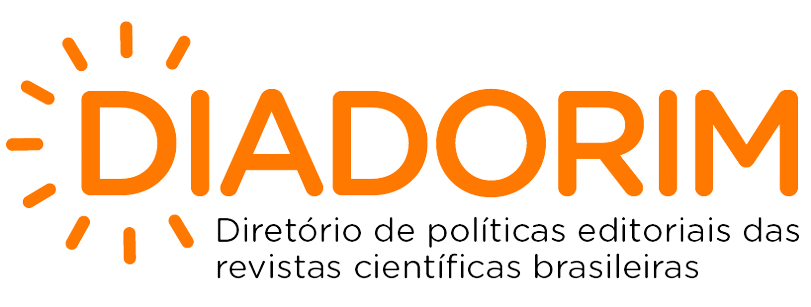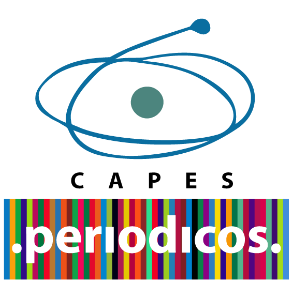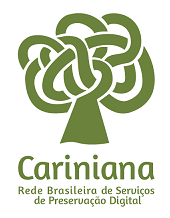An Experience in the Pibid of Geography: student perception of the lived place and freirean pedagogy
DOI:
https://doi.org/10.5433/2447-1747.2023v32n1p203Keywords:
PIBID. Geography teaching. Drawing; Interpretation of space.Abstract
This paper discusses the results of educational practices, applied in the context of didactic sequence, under Pibid. The practices sought to know the neighborhood, in São João del-Rei - MG, Brazil, from the perception of students who live in the place. In the practices, we tried to motivate and sensitize students to think and rethink their actions in the school environment and in the community where they live, in the light of freirean pedagogy. Thus, the students were asked to draw places they like and dislike in their living space. As answers to what they least like, they highlighted the lack of adequate infrastructure in the neighborhood (37.5%), violence (12.5%), environmental issues (12.5%) and problems faced in public transportation (6.25%). As for what they like most, leisure areas (25%), churches (25%), their own home (18.75%), among others, were mentioned. This result leads us to think about the strong absence of the State in the periphery, evidenced by the lack of infrastructure, violence and scarcity. In order to change this scenario, the students wrote letters to the mayor with their demands for improvements. This experience also contributed to understand and reinforce the importance of Pibid in the formation of the professional teacher.
Downloads
References
AMBROSETTI, Neusa Banhara; ARRUDA NASCIMENTO, Maria das Graças Chagas de; ALMEIDA, Patrícia Albieri; CALIL, Ana Maria Gimenes Corrêa; PASSOS, Laurizete Ferragut. Contribuições do Pibid para a formação inicial de professores. Educação em Perspectiva, Viçosa, v. 4, n. 1, p. 151-173, 2013. Disponível em: https://periodicos.ufv.br/educacaoemperspectiva/article/view/6615/2722. Acesso em: 18 jul. 2022.
BARRETO, Vera. Paulo Freire para educadores. São Paulo: Arte & Ciência, 1998.
CALLAI, Helena Copetti. Aprendendo a ler o mundo: a geografia nos anos iniciais do ensino fundamental. Cadernos Cedes, Campinas, v. 25, p. 227-247, 2005. DOI: https://doi.org/10.1590/S0101-32622005000200006
CALLAI, Helena Copetti. Estudar o lugar para compreender o mundo. In: CASTROGIOVANNI, Antônio Castro (org.). Ensino de Geografia: práticas e textualizações no cotidiano. Porto Alegre: Mediação, 2000. p. 72-112.
CARVALHO SOBRINHO, Hugo de. Geografia escolar e o lugar: a construção de conhecimentos no processo de ensinar/aprender geografia. Geosaberes: Revista de Estudos Geoeducacionais, Fortaleza, v. 9, n. 17, p. 1-17, 2018. DOI: https://doi.org/10.26895/geosaberes.v9i17.625
CASTELLAR, Sonia Maria Vanzella. Educação Geográfica: Formação e didática. In: MORAIS, Eliana Marta Barbosa de; MORAES, Loçandra Borges (org.). Formação de professores: conteúdos e metodologias no ensino de Geografia. Goiânia: Nepeg, 2010. p. 39-58.
CAVALCANTI, Lana de Sousa. Geografia e práticas de ensino. Goiânia: Alternativa, 2002.
CAVALCANTI, Lana de Sousa. A geografia escolar e a cidade: Ensaios de Geografia para a vida urbana cotidiana. Campinas: Papirus, 2008.
CAVALCANTI, Lana de Sousa. O ensino de geografia na escola. Campinas: Papirus, 2012.
COGNET, Georges. Compreender e interpretar desenhos infantis. São Paulo: Vozes Limitada, 2013.
CONDINI, Martinho. Fundamentos para uma educação libertadora: Dom Helder Câmara e Paulo Freire. São Paulo: Paulus, 2014.
FÁVERO, Osmar. As fichas de cultura do Sistema de Alfabetização Paulo Freire: um" Ovo de Colombo". Linhas Críticas, Brasília, v. 18, n. 37, p. 465-483, 2012. DOI: https://doi.org/10.26512/lc.v18i37.3988
FREIRE, Paulo. Pedagogia da autonomia: saberes necessários à prática educativa. São Paulo: Paz & Terra, 2001.
FREIRE, Paulo. Educação como prática da liberdade. Rio de Janeiro: Paz e Terra, 2011.
FREIRE, Paulo. Pedagogia do Oprimido. Rio de Janeiro: Paz e Terra, 2016.
FREIRE, Paulo. Conscientização. São Paulo: Cortez, 2018.
LIMA, Paulo Gomes. Saberes pedagógicos da educação contemporânea. Engenheiro Coelho: UNASP, 2013.
LIMA, Paulo Gomes. Uma leitura sobre Paulo Freire em três eixos articulados: o homem, a educação e uma janela para o mundo. Pro-Posições, São Paulo, v. 25, n. 3, p. 63-81, 2014. DOI: https://doi.org/10.1590/0103-7307201407504
MAXIMIANO, Liz Abad. Considerações sobre o conceito de paisagem. RA'EGA, Curitiba, n. 8, p. 83-91, 2004. DOI: https://doi.org/10.5380/raega.v8i0.3391
MOREIRA, Ruy. A Geografia serve para desvendar máscaras sociais. In: MOREIRA, Ruy (org.). Geografia, teoria e crítica: o saber posto em questão. Petrópolis: Vozes, 1982. p. 33-63.
PUNTEL, Geovane A. Paisagem: uma análise no ensino de geografia. 2006. Dissertação (Mestrado em Geografia) - Universidade Federal do Rio Grande do Sul, Porto Alegre, 2006.
SANTOS, Karine; PAULA, Ercília Maria Angeli Teixeira de. A teoria de Paulo Freire como fundamento da Pedagogia Social. Interfaces Científicas: Educação, Aracaju, v. 3, n. 1, p. 33-44, 2014. DOI: https://doi.org/10.17564/2316-3828.2014v3n1p33-44
STRAFORINI, Rafael. Ensinar geografia: o desafio da totalidade-mundo nas séries iniciais. São Paulo: Annablume, 2008.
TUAN, Yi-Fu. Topofilia: um estudo da percepção, atitudes e valores do meio ambiente. São Paulo: Eduel, 2012.
ZABALA, Antoni. A prática educativa: como ensinar. Porto Alegre: ArtMed, 1998.
Downloads
Published
How to Cite
Issue
Section
License
Copyright (c) 2023 GEOGRAFIA (Londrina)

This work is licensed under a Creative Commons Attribution-NonCommercial 4.0 International License.
The authors retain the copyright simultaneously licensing the work under the Creative Commons Attribution-NonCommercial 4.0 International license. This license allows third parties to distribute, remix, adapt, and develop the material in any medium or format for non-commercial purposes, giving due credit for authorship and initial publication in this journal.
The journal reserves the right to make normative, orthographic, and grammatical changes to the originals in order to maintain the standardized language and the credibility of the vehicle while still respecting the authors' writing style. Conceptual suggestions, changes, or corrections will be communicated to the authors when necessary.
The opinions expressed by the authors of the articles are their sole responsibility.
This work is licensed under a Creative Commons Attribution-NonCommercial 4.0 International license.



















